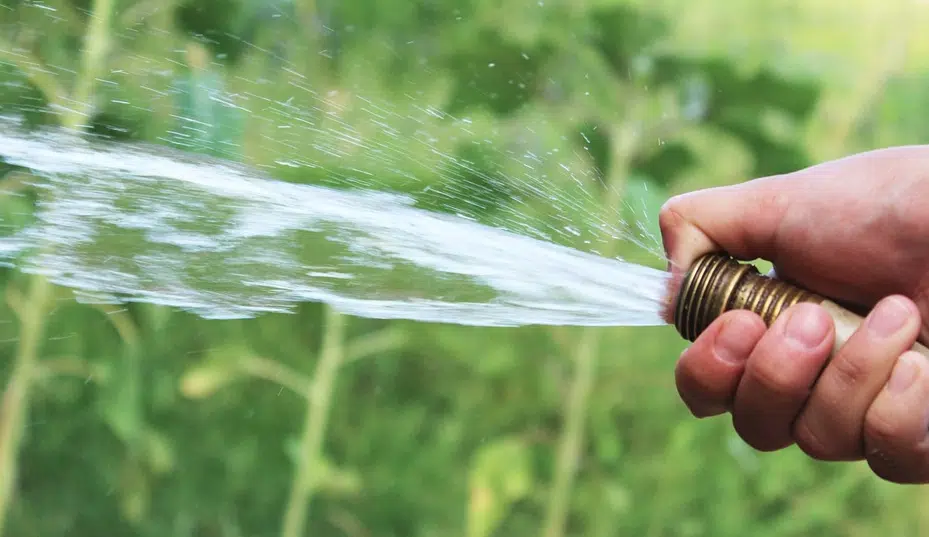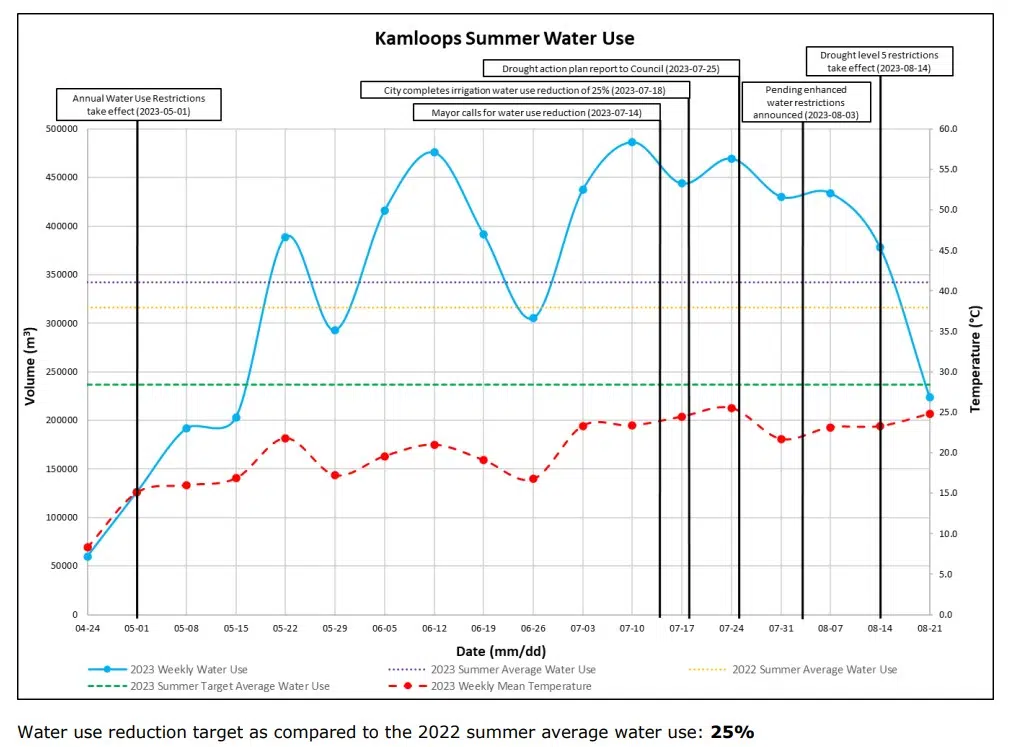
New watering restrictions in the City of Kamloops have led to a big drop in water consumption, according to data released this week.
Utility Services Manager, Greg Wightman, tells Radio NL there have been some “incredible results” since the restrictions took effect on August 14.
“We had about a 29 per cent reduction in water use compared to last summer’s average,” he said on NL Mornings. “Over the past week, we used 154-million litres less water than we did the week before which is pretty incredible.”
“It’s hit that 25 per cent that we were shooting for.”
According to data from the city, water use in Kamloops for the week of Aug. 14 to Aug. 20 was 223,953 cubic metres – nearly 13,000 cubic metres below its average weekly target of 236,943 cubic metres for this summer.

Photo via City of Kamloops
Under the new restrictions, outdoor lawn watering with a sprinkler is no longer allowed, but a spring-loaded nozzle is still good. Commercial pressure and personal vehicle washing are also off-the-table for now.
“I think it really shows the City of Kamloops and our understanding of the importance of the environment that we enjoy and the rivers that really define our city,” he added. “I think people have really stepped up to the plate here.”
“This is all being done to protect the water for salmon – both juvenile salmon and adult salmon – and all the other fish that live in our rivers.”
Both the North and South Thompson Rivers have been at Drought Level 5 – the highest level on the B.C. Government’s six-level scale – since Aug. 3.
Speaking to City Council last Tuesday, Wightman said the province sent letters to the largest users of water in the North Thompson and the South Thompson asking for a 30 to 50 per cent reduction in use. The City though set its target at 25 per cent.
Wightman says while there have been several reports about violations of the restrictions, the City has only ticketed four people.
“If we can accomplish compliance with education, we’ll take that approach every time,” Wightman said. “Tickets are only going to be issued when people are just clearly not wanting to comply.
Wightman says fines will generally be $100 for the first offence, and $200 for each subsequent offence.
While the restrictions will stay in place to see if that drop is sustainable, Wightman says some restrictions could be eased in the weeks ahead, if water use remains low.
“If by chance we see that, ‘hey, these restrictions resulted in a 35 per cent reduction in water use,’ we might be able to relax some of the restrictions,” Wightman said last Tuesday.
“If we don’t achieve that 25 per cent reduction, we may have to look at even more drastic measures because even at 25 we’re not hitting the provinces ask right now of 30.”
For more on drought information in the City of Kamloops and water conservation, go here.















